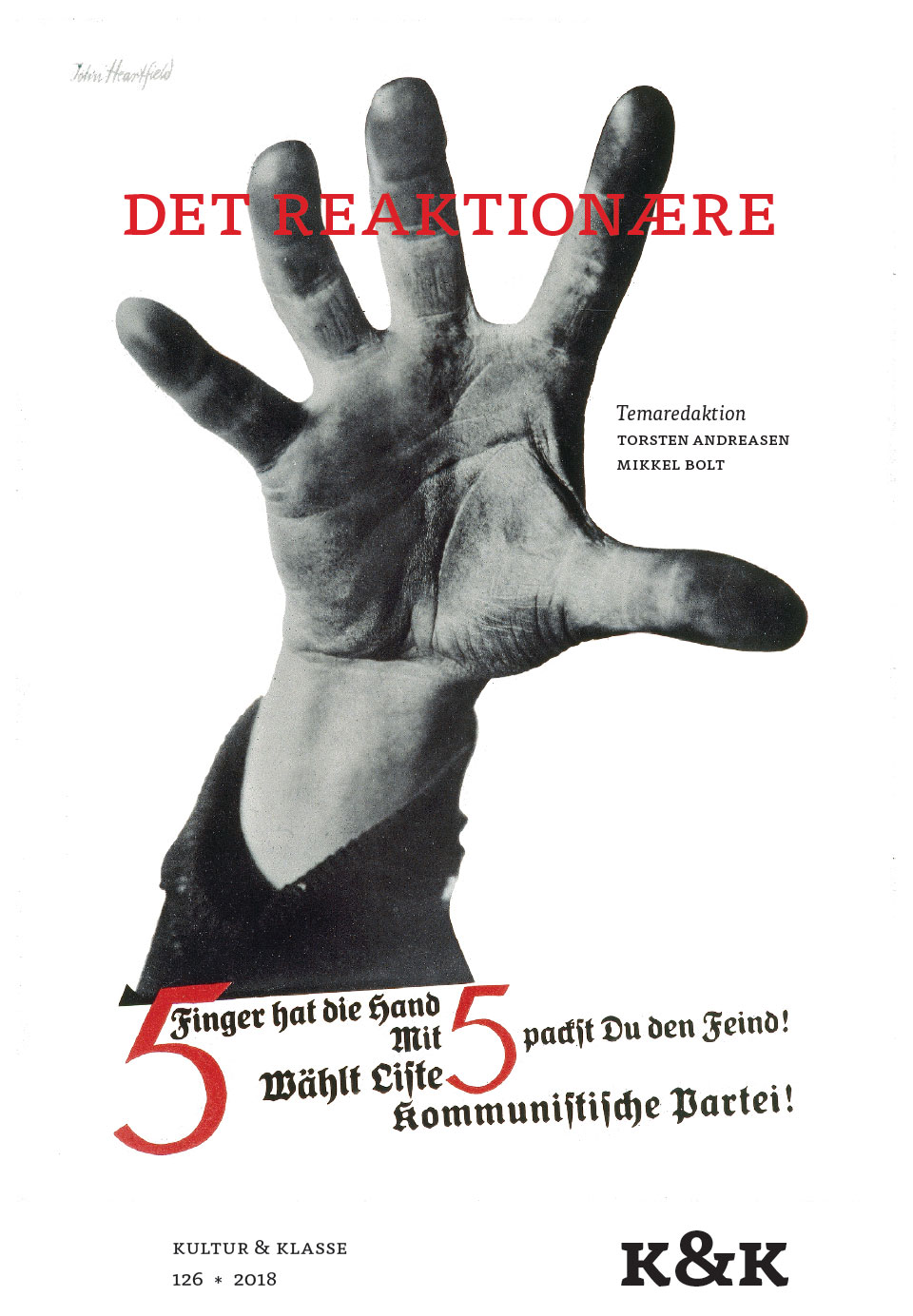Den reaktionære tanke
DOI:
https://doi.org/10.7146/kok.v46i126.111737Keywords:
reactionary; anti-modern; inequality, decadence; degeneration; violenceAbstract
This article explores the basic arguments of reactionary thinking. I argue that reactionary thought originates in an opposition to the Enlightenment and stayed fairly consistent since then, though with local variations around the core. The article first discusses a number of books on reactionary thought before developing the thesis of the genesis of reactionary thought in and around the Enlightenment, not least the opposition to the idea of man as the sovereign creator of his or her own destiny. Then it goes into detail on the specifics of reactionary thought before ending with a few reflections on the contemporary version of reactionary thought.
References
Eagleton, Terry. Holy Terror. Oxford: Oxford University Press, 2005.
Hirschman, Albert. The Rhetoric of Reaction: Perversity, Futility, Jeopardy. Cambridge: Harvard Universirt Press, 1991.
Koselleck, Reinhart. Begreber, tid og erfaring. København: Hans Reitzel, 2007.
Lakoff, George. Moral Politics: What Conservatives Know that Liberals Don’t. Chicago & London: University of Chicago Press, 1996.
Lakoff, George. The Political Mind: Why You Can’t Understand 21st Century Politics with an 18th Century Brain. New York: Viking, 2008.
Lilla, Mark. The Reckless Mind: Intellectuals in Politics. New York: New York Review Books, 2001.
Lilla, Mark. The Shipwrecked Mind: On Political Reaction. New York: New York Review Books, 2016.
McMahon, Darrin M. Enemies of the Enlightenment: The French Counter-Enlightenment and the Making of Modernity. New York: Oxford University Press, 2001.
Penny, Laurie. ”You are not a rebel”. The Baffler 11. september 2017. Thebaffler.com/war-of-nerves/you-are-not-a-rebel.
Robin, Corey. The Reactionary Mind: Conservatism from Edmund Burke to Donald Trump. Oxford: Oxford University Press, 2. udg., 2018.
Solzhenitsyn, Aleksandr. ”A world split apart”. Solzhenitsyn at Harvard. Red. Ronald Berman. Washington, DC: Ethics and Public Policy Center. 1980. 3-20.
Taguieff, Pierre-André. ”The Traditionalist Paradigm: Horror of Modernity and Antiliberalism”. Why We are Not Nietzscheans. Red. Luc Ferry og Alain Renaut. Chicago & London: University of Chicago Press, 1997.
Thorup, Mikkel. Fornuftens perversion. Modoplysning og 200 års krig mod fornuftens herredømme. Aarhus: Aarhus Universitetsforlag, 2008.
Thorup, Mikkel. ”Når mænd frygter kvinder – Houellebecq, Trump og andre frygtsomme mænd”. Kulturo 43 (2017): 96-105.
Thorup, Mikkel. Statens idéhistorie. Magt, vold og politik. Aarhus: Aarhus Universitetsforlag, 2015.
Thorup, Mikkel, red. Uhørt! Idéhistorien læser Donald Trump. Aarhus: Baggrund, 2017.
von Eggers, Nicolai. ”Liberalismens skibbrud”. Kommunikationsforum 25. november 2016. http://www.kommunikationsforum.dk/artikler/Marc-Lillas-The-Shipwreced-Mind.
Downloads
Published
How to Cite
Issue
Section
License
Tidsskriftet følger dansk ophavsret.





